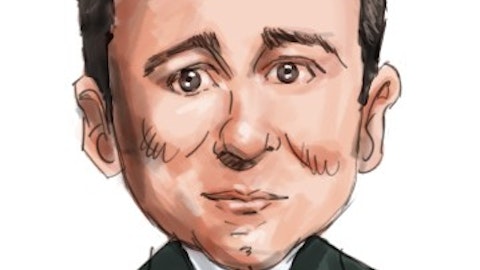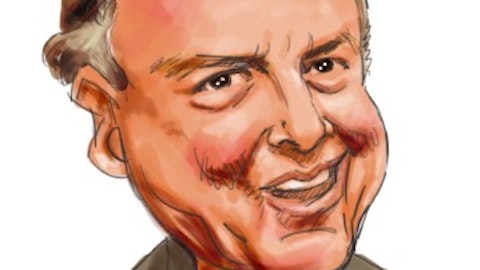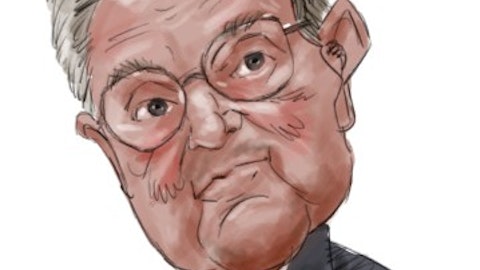
Smaller-sized hedge funds are increasingly throwing in the towel in Asia as they struggle to attract money from risk-wary institutional investors, casting a cloud over prospects of the $128 billion industry. The latest to quit is former Lehman Brothers trader Allan Bedwick, who is shutting his $120 million Asia-based fund after giving it a two-and-half-year run, fund documents obtained by Reuters showed.
Howard warns politicians as hedge funds feel regulatory heat (EFinancialnews)
Alan Howard, Europe’s number one hedge fund manager, who rarely makes public speeches, has urged policymakers to realise that his industry has a crucial role to play in fostering an economic recovery. Speaking at last week’s Financial News hedge funds awards, he said: “What is vitally necessary at this time is the mobilisation and deployment of risk capital. That’s what hedge funds do exceptionally well. The fact is our industry is a very important and under-appreciated element in the road to recovery.”
Fortescue hits back on hedge bet (News)
THE head of Fortescue Metals Group, Nev Power, says the miner has planned for the price of iron ore to drop to as low as $US110 ($A113.51) a tonne, but doubts it will fall much further than that. Australia’s third-largest iron ore producer has been on the defensive since prominent hedge fund manager and short seller Jim Chanos said last month his hedge fund was betting against FMG by short selling the stock.
Annual Warren Buffett lunch auction under way (SFGate)
It’s true that Warren Buffett hired the hedge fund manager who won the last two private lunches with him that are part of an annual auction, but he doesn’t expect the event to become a recruiting tool for Berkshire Hathaway. Rather, Buffett says it’s miraculous that he found one of Berkshire’s two new investment managers through the lunch. He offered Ted Weschler a job after he’d paid nearly $5.3 million over two years to dine with Buffett.
Flood of Hedge-fund Money Could Keep Insurance Cheap (CFO)
In a move that could keep corporate property-casualty insurance prices manageable even when catastrophe strikes, hedge-fund investors are taking a cue from Warren Buffett. They are forming their own reinsurance companies or investing in reinsurers as special-purpose insurers, mostly in Bermuda, according to a reinsurance-investment expert. The new reinsurers will fortify the traditional property-casualty reinsurance market, thus buttressing the capacity of insurers to assume risk. “They won’t replace reinsurers, because reinsurers do what they do very well,” explains Chi Hum, global head of ILS Distribution, GC Securities, the capital markets and insurance-linked securities arm of reinsurance broker Guy Carpenter.
SkyBridge To Close Hedge-Fund-Seeding Funds, Return Capital (WSJ)
SkyBridge Capital LLC is returning to investors capital from its two hedge-fund-seeding funds on lackluster performance. “We just thought results were mediocre so we gave people the chance to switch into a better-performing product or get their money back. It was pro-client and well received,” said SkyBridge founder and managing partner Anthony Scaramucci in an email.
Hedge Fund Charity to Honor Warrick Dunn (Hedgeco)
Former NFL star running back Warrick Dunn will be honored for his outstanding charitable contributions at A Little Hope’s ‘A Night For Our Children’ 11th annual fundraising gala. A Little Hope is a non-profit, hedge fund backed foundation that provides grief counseling and bereavement support services to children and teens who have experienced the loss of a parent or a loved one.
Asia offers great opportunities and Singapore could be next hub for wealth management (Opalesque)
The Asian markets offer great opportunities, as well as a unique market set with all sorts of investment opportunities. It also provides a place where hedge fund managers can apply many different strategies across various businesses. These were the agreed sentiments of hedge fund managers who attended the latest Opalesque Singapore Roundtable held in early May. More importantly, the hedge fund managers also envisage Singapore as the center for wealth management in the near future. The Opalesque Singapore Roundtable was sponsored by Eurex and SunGard discussed the type of investors who preferred Singapore hedge funds.
APERS to make hedge fund debut with $100m mandate (HFMweek)
The Arkansas Public Employees Retirement System (APERS) is making its first steps into the hedge fund space with an initial $100m fund of hedge funds (FoHF) mandate, HFMWeek can exclusively reveal. APERS’ board of trustees, who have previously had reservations about investing in hedge funds, voted unanimously in April to move forward with a search for a FoHF in an effort to smooth returns and mitigate some of the risk in their $4.7bn portfolio, according to documents seen by HFMWeek.
Hedge Funds In Longest Rout Since Global Recession (Bloomberg)
Hedge funds curbed bullish bets on commodities for a third consecutive month, the longest retreat since the global recession, as Europe’s worsening debt crisis and slowing U.S. job growth sent prices tumbling. Money managers reduced net-long positions across 18 U.S. futures and options by 8.1 percent to 620,715 contracts in the week ended May 29, extending the monthly decline to 26 percent, Commodity Futures Trading Commission data show. Speculators are now the most bearish since the start of year on copper, oil, heating oil, corn, gold and silver. The Standard & Poor’s GSCI Spot Index of 24 raw materials slumped 13 percent in May.
Prison-Bound Bauer Reprises ‘Confessions Of An Inside Trader’ (Bloomberg)
Garrett Bauer stood in a New York University lecture hall and warned 150 students not to emulate him. The day trader recounted illegally making millions of dollars over 17 years using corporate merger tips stolen by an attorney. Students stopped checking their iPhones and stared at Bauer, 44. He told how the lawyer, Matthew Kluger, searched law firm files for tips to pass to a middleman, Kenneth Robinson, one of Bauer’s closest friends. They escaped detection by talking on disposable, prepaid mobile phones. Their scheme unraveled after the Federal Bureau of Investigation persuaded Robinson to make secret recordings of conversations.
Gupta, Rajaratnam Aspired To Start $2 Billion Fund, Kumar Says (Bloomberg)
Anil Kumar, a former McKinsey & Co. partner, testified against his former mentor, Rajat Gupta, describing how he teamed up with Galleon Group LLC co-founder Raj Rajaratnam in 2006 to try to raise $2 billion for an investment fund. Kumar, who pleaded guilty to a participating in an insider- trading scheme with Rajaratnam, was called yesterday as a government witness at Gupta’s federal court trial in Manhattan. Prosecutors asked Kumar to explain to jurors the nature and history of various business ventures Gupta and Rajaratnam were part of and in which he served as an adviser.
AOL urges shareholder approval of its board nominees (Reuters)
AOL Inc, waging a proxy fight with activist hedge fund Starboard Value, said on Saturday its shareholders should approve all eight nominees for its board of directors after an advisory service recommended the approval of only six. In a statement, the Internet and media company lauded a report by Institutional Investor Services calling for the rejection of Starboard’s full slate of nominees, but said, “ISS reached the wrong conclusion in failing to recommend that AOL stockholders vote for all eight of the company’s highly qualified director nominees.”
Man Group set for FTSE 100 eviction at review (Reuters)
Just one change is expected to be made to Britain’s FTSE 100 at next week’s quarterly indexes review, with hedge fund manager Man Group set to be replaced by defence services firm Babcock International, according to data from FTSE. Man Group shares have nearly halved in value since the last FTSE review in March, having seen clients withdraw money from its funds as asset values have dropped along with markets roiled by the euro zone debt crisis.
KPN may try to sell German unit to fend off Slim (Reuters)
Dutch telecoms group KPN said it could sell its German unit, its largest and most profitable business, in a renewed attempt to persuade shareholders to reject a bid from Mexican tycoon Carlos Slim. Slim’s America Movil has launched an offer of $3.25 billion, or 8 euros per share, for up to 28 percent of KPN, enough to have a major say in the company’s strategy but below the threshold that would oblige it to make an offer for the whole company.
Hedges Gone Awry Set Back Chesapeake (WSJ)
Chesapeake Energy Corp. blames its current cash crunch on warm winter weather that reduced demand for the natural gas it pumps as the nation’s second-largest producer of the fuel. But the situation is more complicated: The company compounded its troubles by taking a short-term gamble on gas prices that left it exposed to the worst gas market since 2001. Last October, Chesapeake sold the financial contracts that were its insurance, or hedge, against low gas prices.
New York still the undisputed center of the global hedge fund industry: hedge fund news, week 22 (Opalesque)
In the week-ending 01-June 2012, it was reported that Fortress Investment Group had launched an Asia volatility-based fund Fortress Convex Asia Fund last month; Jack Schwager and Emanuel Balarie teamed up to launch a multi manager FX fund called the ADM Investor Services Diversified Strategies Fund; Kellner DiLeo reorganized, rebranded and launched a new event-driven hedge fund; Turkish firm Tacirler debuted its new hedge fund last Friday; and Eaton Vance Management launched two UCITS funds that will invest in emerging markets and global equities. The Parker FX Index was down -0.59% in April (-0.82% YTD); The ‘Alternative Alternatives’ investment funds was down 0.41% (+1.81% YTD); And hedge funds investing in Russia, India and Latin America led first quarter gains as the HFRI Emerging Markets Index returned 7.3%.
AIMA’s Andrew Baker: Hedge Funds Prove Their Worth over the Long Term (Absolutereturn-Alpha)
Hedge funds, theirrole within financial markets and the returns they generate have been under considerable debate since the global financial crisis of 2008. Some policymakers have been quick to blame hedge funds for market failures, while some critics have questioned their performance. A newly published study from the Centre for Hedge Fund Research at Imperial College London, however, uses compelling empirical data backed by detailed analysis to contribute some much-needed objectivity to the debate about the merits of hedge funds. The research — commissioned by KPMG, the international audit, tax and advisory firm, and AIMA — provides powerful proof of hedge funds’ ability to generate stronger returns than equities, bonds and commodities, and to do so with lower volatility and risk than equities and commodities.
Health Care Foundation of Greater Kansas City considers $13m HF boost (HFMweek)
The Health Care Foundation of Greater Kansas City (HCF), which manages almost half a billion dollars in assets, is considering boosting its hedge fund allocation by around $13m, HFMWeek can confirm. Hewitt EnnisKnupp, the Missouri-based foundation’s investment consultant had previously recommended HCF “stay light” with its commitment to the space but is now mulling whether to switch bonds for hedge funds, documents seen by HFMWeek reveal.
Berkshire Scion Peter Buffett Bails Out of One Madison for an Extra $750,000 (Observer)
Apparently, a high-rise Manhattan condo didn’t really suit Peter Buffett. The youngest son of the famously frugal, resolutely Midwestern clan of the Berkshire Hathaway chief Warren Buffett has dumped his 18th-floor pad at 23 East 22nd Street for $4.25 million. The sale, which was previously reported by The New York Post, has finally hit city records. Despite his hesitance to pass on financial advice or anything beyond a $90,000 inheritance to his children (the oracle of Omaha does not, reportedly, believe in inherited wealth), the elder Buffett obviously passed on some investing savoir faire.
Remarks at the Festival of Economics, Trento Italy (Georgesoros)
Ever since the Crash of 2008 there has been a widespread recognition, both among economists and the general public, that economic theory has failed. But there is no consensus on the causes and the extent of that failure. I believe that the failure is more profound than generally recognized. It goes back to the foundations of economic theory. Economics tried to model itself on Newtonian physics. It sought to establish universally and timelessly valid laws governing reality. But economics is a social science and there is a fundamental difference between the natural and social sciences. Social phenomena have thinking participants who base their decisions on imperfect knowledge. That is what economic theory has tried to ignore.





